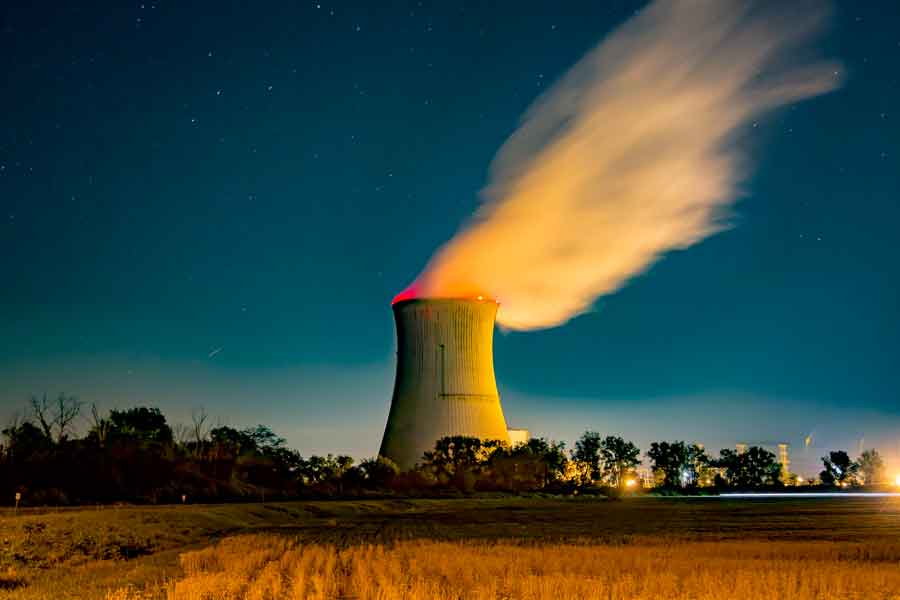ENERGETIC EXPLOTATION
Thanks to the low boiling temperatures, starting from 32ºC, at which ZEWATECH systems can operate, it’s possible to harness available heat energy to treat wastewater at zero energy cost.
KEY SYSTEM
For energy utilization, the key factor is the difference between sensible heat and latent heat.
Sensible heat and latent heat are two different types of thermal energy that can be transferred between systems or substances when there is a temperature difference.
Sensible heat refers to thermal energy that causes a change in the temperature of a substance without causing a change in its physical state.
On the other hand, latent heat refers to the thermal energy required for a substance to change its physical state, such as from solid to liquid or from liquid to gas. During these phase changes, the temperature of the substance remains constant while thermal energy is added or removed to complete the phase transition.
In summary, the main difference between latent heat and sensible heat is that the former is required for a change in physical state, while the latter only causes a change in the temperature of the substance.

SOLUTION ZEWATECH
Despite being a challenging issue for many sectors, ZEWATECH sees it as an opportunity for clients to reduce energy costs in various processes within a company.
BIOMASS:
The resulting products from excess organic matter of plant or animal origin can be used as an energy source for the ZEWATECH process, either as fuel (biomass). These can include forest products such as wood, bark, wood chips, pruning residue, or forest masses; agricultural products like vine pruning, almond shells, nut shells, olive pits, and other fruits; or industrial waste from timber industries or cork manufacturing.
DECOMPOSITION GASES:
The second and more significant source involves utilizing decomposition gases from organic matter as fuel (methanol). The biogas generated can be considered a good fuel source for combustion and heat and/or electricity generation. One cubic meter of biogas contains energy equivalent to about 0.6 liters of diesel fuel.
COMBUSTIBLE INDUSTRIAL BYPRODUCTS:
In industrial processes, it’s possible to mix or design special burners for byproducts resulting from the industry. A specific study must always be conducted to assess the thermal capacity and adaptation to the products to be incinerated. There are many products or mixtures, including industrial fuel oil, ship diesel fuel, acetaldehyde, diethyl ether, pentane, methanol, acetone, ethanol, propanol, toluene, butanol, kerosene, styrene, turpentine, varnishes, enamel, paints, and more.
HEAT RECOVERY FROM COMBUSTION GAS OUTLET OR CHIMNEYS:
The recovery of residual heat is a significant energy-saving method in numerous industries. These systems recover this energy through heat exchangers and produce steam, thermal oil, or hot water using the heat from exhaust gases.
